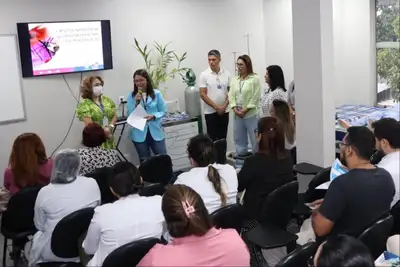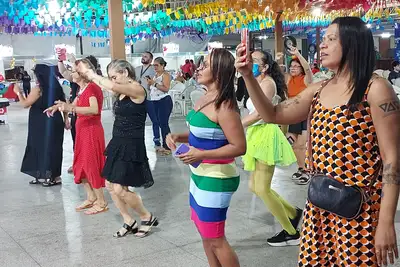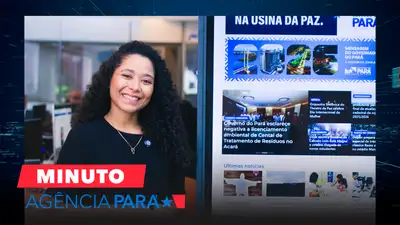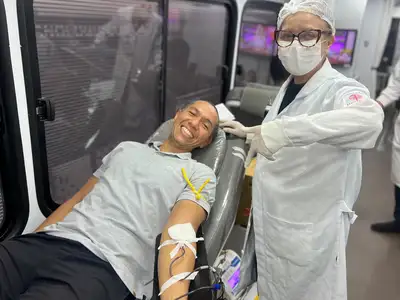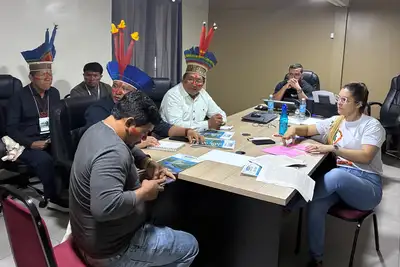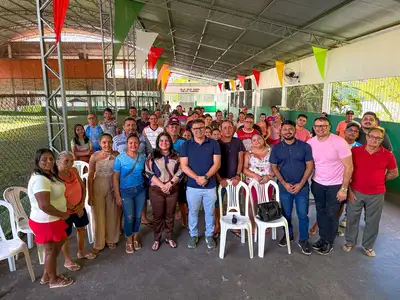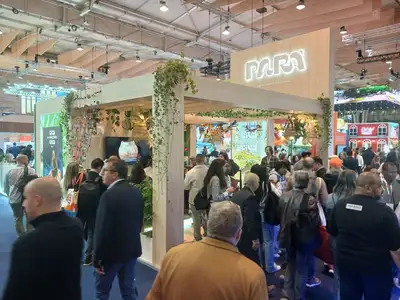State participates in the panel 'Living Territories: Socio-bioeconomy and the Rights of Peoples'
Semas, representing the Government of Pará, participated this Saturday (08) in the programming of the Sebrae Collective Festival at Casa Brasil
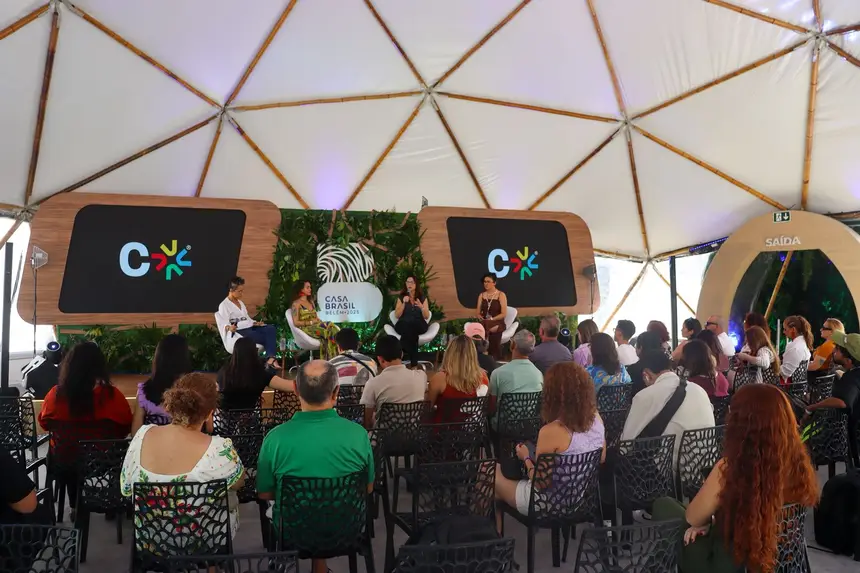
The Collective Festival program, organized by the Brazilian Service of Support for Micro and Small Enterprises (Sebrae) at Casa Brasil, has been bringing important debates in one of the parallel events to COP30. On this occasion, the Deputy Secretary of Bioeconomy of the Secretariat of Environment, Climate and Sustainability (Semas), Camille Bemerguy, was present at the debate of the panel "Living Territories: Socio-bioeconomy and the Rights of Peoples."
With agents from civil society and public sectors, the conversation addressed themes around the riches provided by the forest, discussions about indigenous peoples, environmental and climate justice, as well as how indigenous peoples benefit from and can develop their activities in bioeconomy.
Pará was a pioneer in building the bioeconomy plan. A public policy that has been transforming lives and the economy in the State. "We cannot talk about climate justice without social justice. So, the communion of this only comes when we understand that we need to bring this living side of the territories, their different perspectives, get everyone to listen to each other, and in this process learn together and build public policy and social transformation - thus the sound of this living territory will become even more potent than it has always been and with more visibility," said Camille Bemerguy, Deputy Secretary of Bioeconomy at Semas.
Concrete Actions in Bioeconomy - The participation of the State Government, through Semas, is important to ratify and reinforce this movement of forest conservation, valuing indigenous peoples, bioeconomy, and maintaining these living territories with respect and social justice. The State Bioeconomy Plan (PlanBio), which promotes the construction of a new logic of development for Pará, through the valorization of the peoples of the Amazon and the living forest, was launched in 2022 and has already benefited more than 2,300 businesses, with a direct impact on over 404,000 people and has allowed investments of around 600 million reais.
PlanBio has also developed Inova Sociobio, which focuses on strengthening community businesses, especially women and youth in indigenous, quilombola, extractivist, and family farming communities.
PlanBio has the Bioeconomy Park as its most important structuring project to promote an innovative and scalable environment for bioeconomy. The Park was recently inaugurated and is the most diverse technological development complex in the world in the model of forest production. The Park was born as the largest hub of this segment in Latin America and is the only technological park on the planet that uses the potential of the forest to serve traditional communities and startups in the area.
Innovation and Solutions -
The advances have been consistent and constant; however, still timid for the potential that the state of Pará has. The State has already given a boost and is the epicenter of a new economic model based on standing forests, tradition, innovation, and prosperity. How to embrace bioeconomy in its diversity that contemplates the socio-biodiverse but, mainly, thinks of global and scalable solutions? The answer to this comes from innovation with solutions that come from the forest.
"We no longer have time to wait to make it perfect; there is an urgency that brings us to the now from what is already in place. We will learn by doing. One of the physical infrastructures that seeks to give a boost to bring innovation to the heart of the bioeconomy strategy is the implementation of the Amazon Bioeconomy and Innovation Park. Conceived as a space where science, technology, and traditional knowledge meet to generate new possibilities," reinforced Camille Bemerguy.
The State Government continues to monitor the entire official and parallel agenda of COP30, participating in debates, conversations, solutions, and thoughtful processes for a better Pará and for the preservation of the environment, discussions about climate, and the development of sustainability.
Text by Lucas Maciel / Ascom Semas



